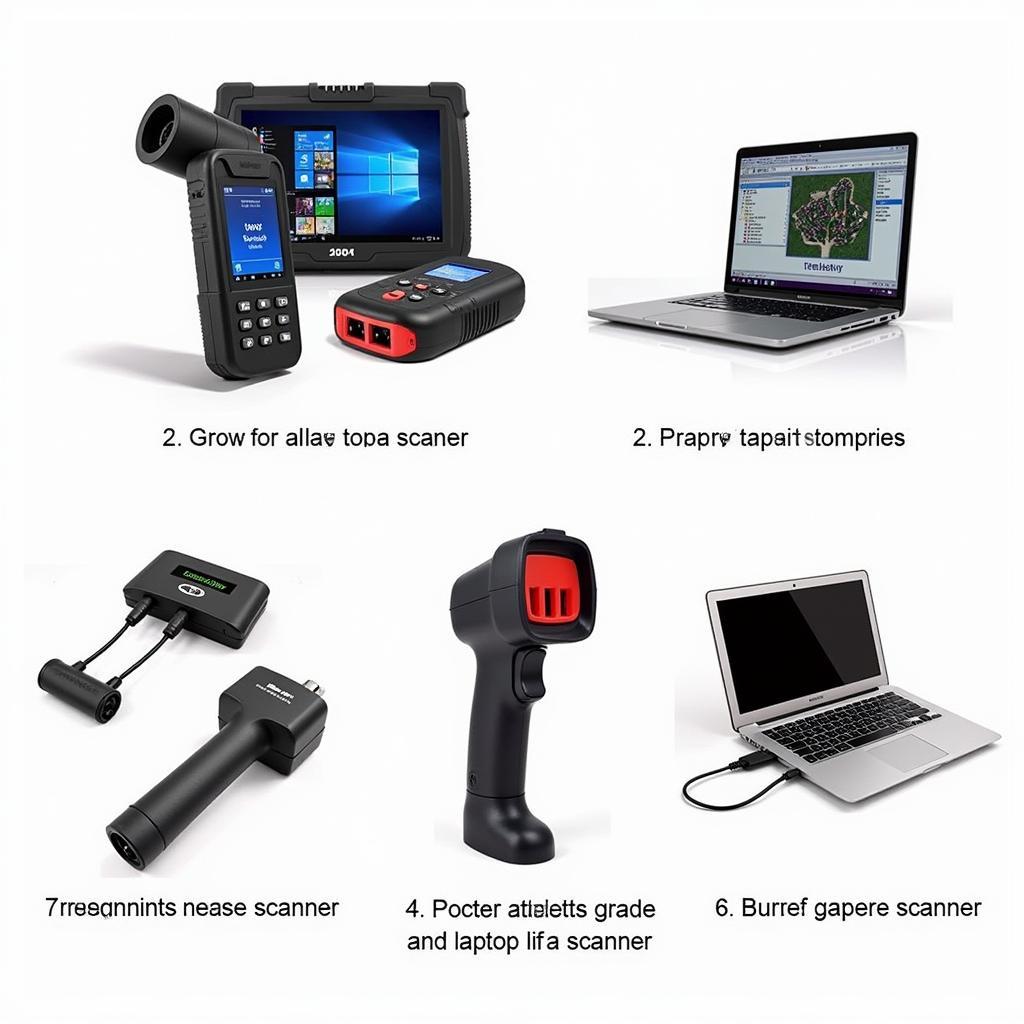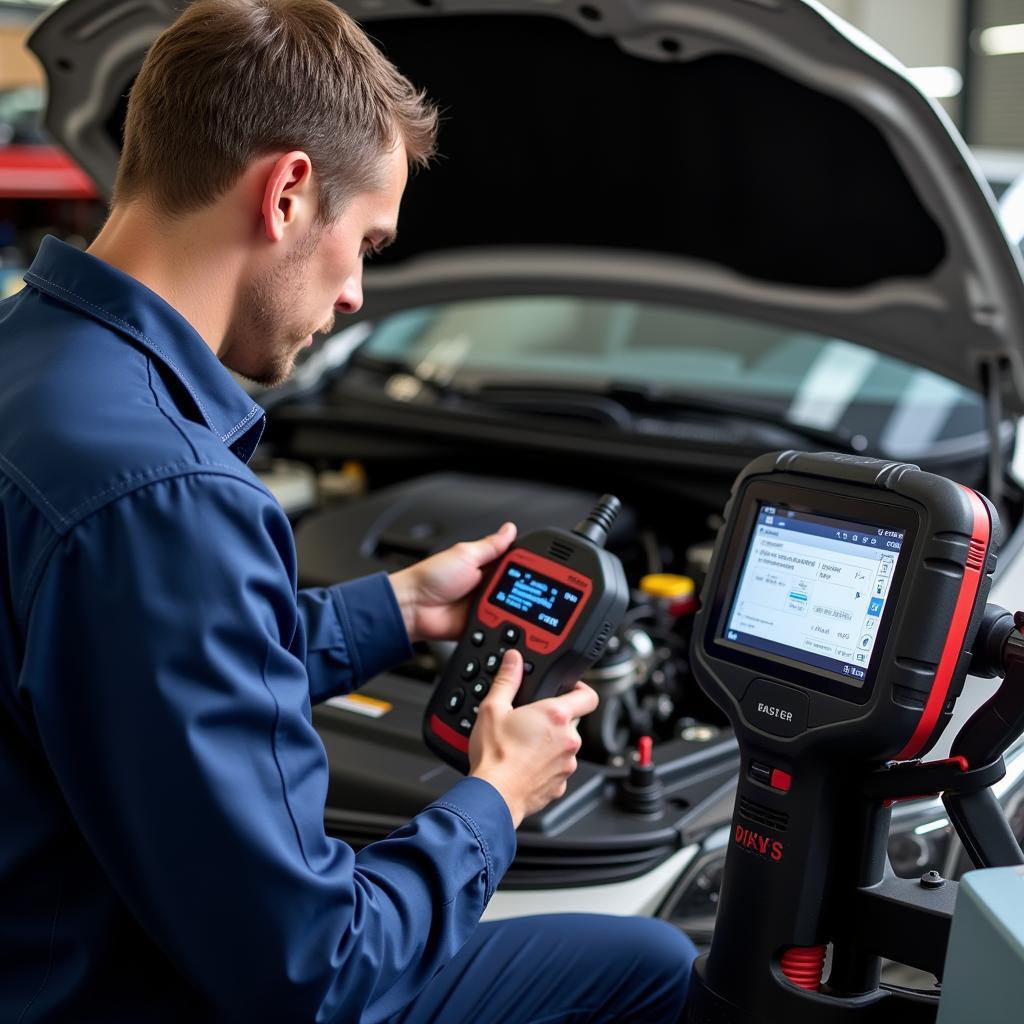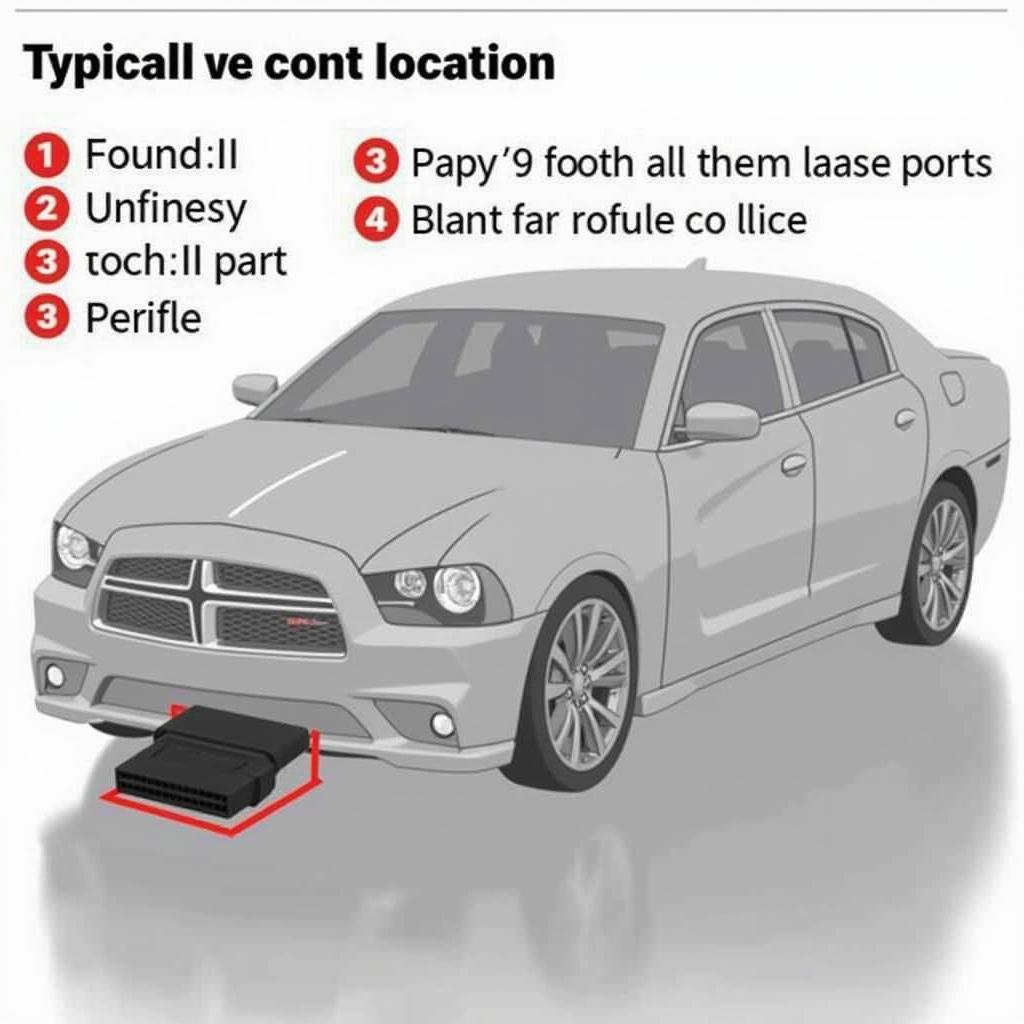Finding a reliable diagnostic scanner that works seamlessly with a wide range of car makes and models can be a daunting task. With so many options available, it’s difficult to know which one will meet your specific needs. This comprehensive guide explores the world of diagnostic scanners for all cars, empowering you to make an informed decision and keep your vehicle running smoothly.
What is a Diagnostic Scanner for All Cars?
A diagnostic scanner, also known as an OBD scanner or code reader, is an essential tool for car owners and mechanics alike. It allows you to communicate with your car’s computer system, retrieve diagnostic trouble codes (DTCs), and gain valuable insights into your vehicle’s health.
While some scanners are designed for specific car makes or models, a Diagnostic Scanner For All Cars offers compatibility with a wide range of vehicles, making it an indispensable tool for multi-car households, workshops, and anyone who works on different vehicles regularly.
 Types of Diagnostic Scanners
Types of Diagnostic Scanners
Why Do You Need a Diagnostic Scanner for All Cars?
Owning a diagnostic scanner for all cars can save you time, money, and frustration in the long run. Here’s why:
- Diagnose Engine Problems: Identify the root cause of check engine lights, engine misfires, and other performance issues.
- Read and Clear DTCs: Retrieve and erase diagnostic trouble codes to understand the severity of the problem and reset the check engine light.
- Monitor Live Data: View real-time sensor data such as engine RPM, coolant temperature, and oxygen sensor readings to monitor engine performance and identify potential problems.
- Perform Special Functions: Depending on the scanner’s capabilities, you can perform advanced functions like ABS bleeding, airbag system resets, and transmission module coding.
 Mechanic Using a Diagnostic Scanner
Mechanic Using a Diagnostic Scanner
Key Features to Consider When Choosing a Diagnostic Scanner for All Cars
When selecting a diagnostic scanner for all cars, consider these essential features:
- Vehicle Coverage: Ensure the scanner supports a wide range of car makes and models, including both domestic and foreign vehicles.
- OBD-II Protocols: Verify the scanner is compatible with all five OBD-II protocols (SAE J1850 PWM, SAE J1850 VPW, ISO 9141-2, ISO 14230-4 KWP2000, and ISO 15765-4 CAN).
- Code Reading and Clearing: The scanner should be able to read and clear both generic and manufacturer-specific DTCs.
- Live Data Streaming: Choose a scanner that displays live data from various sensors in real-time, allowing for comprehensive diagnostics.
- Special Functions: Consider scanners offering advanced functions like ABS bleeding, airbag resets, and key programming for enhanced functionality.
- User Interface and Display: Opt for a scanner with an intuitive user interface and a clear, easy-to-read display.
- Connectivity and Updates: Look for scanners with Bluetooth or Wi-Fi connectivity for wireless data transfer and software updates.
- Durability and Portability: Choose a scanner built to withstand workshop environments and offer portability for on-the-go diagnostics.
all cars fault diagnostic scanner
Types of Diagnostic Scanners for All Cars
The market offers a variety of diagnostic scanners for all cars, each catering to different needs and budgets. Some popular types include:
1. Handheld OBD-II Scanners
These portable, budget-friendly scanners are ideal for basic diagnostics, such as reading and clearing DTCs. They are user-friendly and provide essential information for DIY car owners.
2. Bluetooth OBD-II Scanners
These scanners connect wirelessly to your smartphone or tablet, providing a convenient and portable solution. They offer more advanced features than basic handheld scanners, including live data streaming and graphing.
3. Professional-Grade Diagnostic Scanners
These high-end scanners offer comprehensive diagnostics, advanced programming capabilities, and extensive vehicle coverage. They are typically used by professional mechanics and workshops.
diagnostic machine for all cars price
How to Use a Diagnostic Scanner for All Cars
Using a diagnostic scanner is generally straightforward:
- Locate the OBD-II Port: The OBD-II port is typically located under the dashboard on the driver’s side.
- Connect the Scanner: Plug the scanner into the OBD-II port.
- Turn On the Ignition: Turn the ignition key to the “on” position without starting the engine.
- Read the Codes: Select the “read codes” function on the scanner.
- Diagnose the Problem: Refer to the scanner’s user manual or online resources to understand the meaning of the retrieved codes.
- Clear the Codes: Once you have addressed the problem, clear the DTCs using the scanner.
 Locating the OBD-II Port in a Car
Locating the OBD-II Port in a Car
Benefits of Owning a Diagnostic Scanner for All Cars
Owning a diagnostic scanner for all cars provides numerous benefits:
- Cost Savings: Diagnose and fix minor car problems yourself, saving on expensive mechanic bills.
- Early Problem Detection: Identify potential issues before they escalate into major repairs.
- Improved Vehicle Performance: Monitor engine performance and optimize fuel efficiency.
- Enhanced Resale Value: Maintaining a well-maintained vehicle with documented diagnostics can increase its resale value.
- Peace of Mind: Gain confidence in your car’s health and avoid unexpected breakdowns.
diagnostic machine for all cars uk
Conclusion
A diagnostic scanner for all cars is an invaluable tool for car owners, DIY enthusiasts, and professional mechanics alike. By investing in a quality scanner, you can diagnose car problems accurately, save money on repairs, and keep your vehicle running smoothly. When choosing a scanner, consider your budget, vehicle compatibility, and desired features to find the perfect fit for your needs.
FAQs
1. Are diagnostic scanners for all cars compatible with older vehicles?
Most modern scanners are compatible with vehicles manufactured after 1996, when the OBD-II standard became mandatory in the US. However, some scanners may offer limited functionality on older vehicles.
2. Can I use a diagnostic scanner to program car keys?
Some professional-grade scanners offer key programming capabilities; however, this functionality is not available in all scanners.
3. How often should I use my diagnostic scanner?
It’s a good practice to scan your car for codes periodically, even if there are no warning lights illuminated. This allows for early problem detection and preventive maintenance.
4. Can I trust the information provided by a diagnostic scanner?
Diagnostic scanners are sophisticated tools that provide accurate information when used correctly. However, it’s essential to refer to reliable sources to interpret the codes and diagnose the problem accurately.
5. Where can I buy a reliable diagnostic scanner for all cars?
You can purchase diagnostic scanners from reputable online retailers, automotive parts stores, and specialized diagnostic equipment suppliers.
6. What is the price range for diagnostic scanners for all cars?
The price of diagnostic scanners varies depending on the brand, features, and capabilities. Budget-friendly options are available for under $100, while professional-grade scanners can cost several thousand dollars.
Need Expert Assistance with Car Diagnostics?
If you require assistance with car diagnostics or are looking for a reliable diagnostic scanner for your vehicle, our team of experts at DiagFixPro is here to help. Contact us today for personalized guidance and top-notch diagnostic solutions.
WhatsApp: +1(641)206-8880
Email: [email protected]
Our dedicated customer support team is available 24/7 to answer your questions and provide expert advice.

Leave a Reply